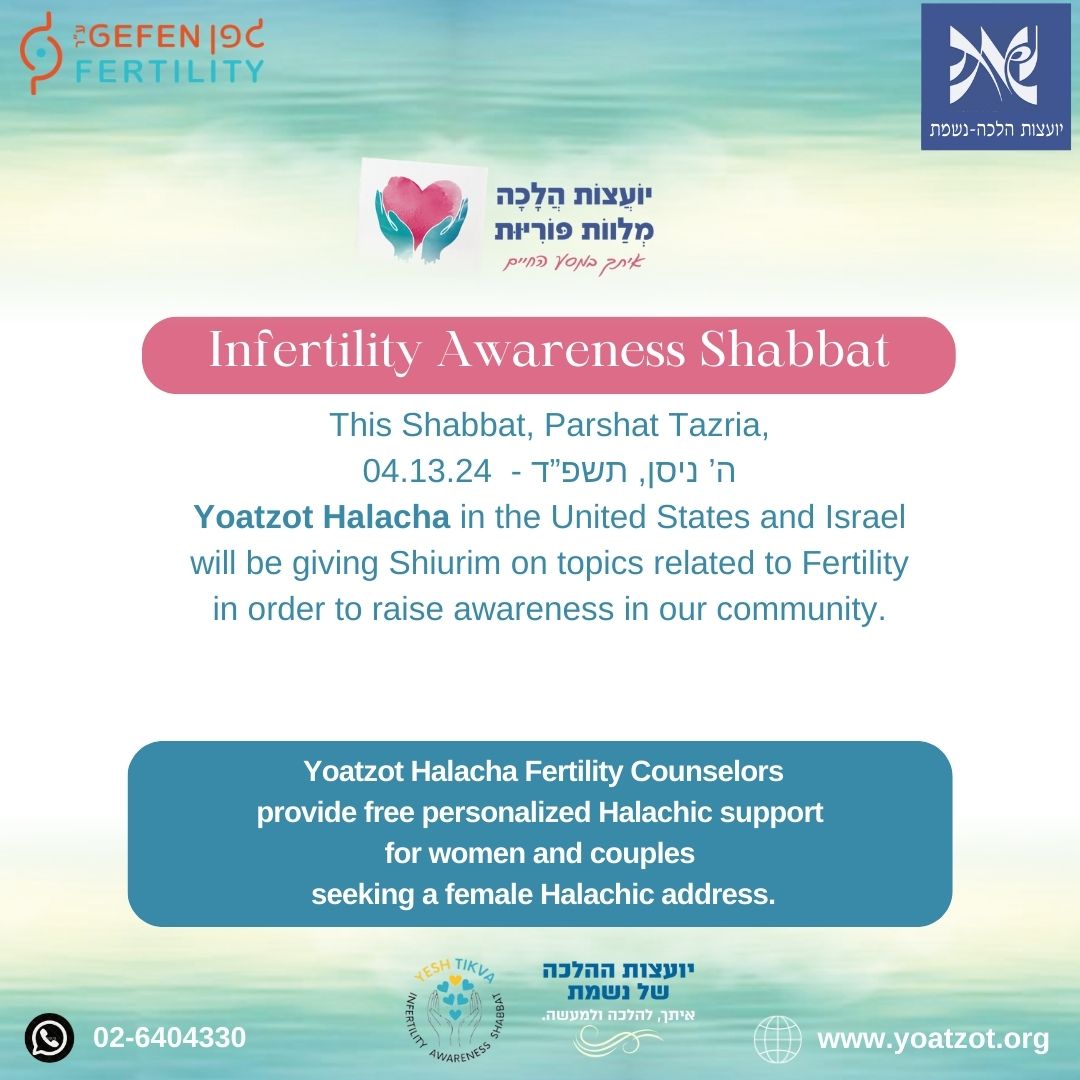I am in quarantine because of possible exposure to the Coronavirus, and I’m now counting my seven clean days. I understand that if I have a question on any colors, I can’t show them to a rabbi. Can I do fewer than two bedikot a day?
You are definitely facing a number of challenges, and these questions only begin to touch on them. Our hearts go out to you, and we are here to assist you in any way possible.
If you feel that performing bedikot will be particularly stressful for you, or if you have reason to believe that they will raise many halachic questions, then you are permitted to perform fewer bedikot this cycle.
Please note that, at minimum, you must perform a hefsek taharah and one bedikah each on days one and seven. We strongly recommend performing at least one more bedikah on one of the intermediate days.
Should any questions arise, please consult a halachic authority, as explained below, as soon as possible. In this situation, you might try to make another bedikah prior to sunset, to serve as a new hefsek taharah should one be necessary.
If you do have a questionable bedikah, we recommend that you call the halachic authority to whom you usually bring such questions to consult. (You could also contact a Yoetzet Halacha through Nishmat’s Golda Koschitzky hotline, or a local Yoetzet Halacha.) Explain that you cannot bring in the cloth because you are in quarantine, and give as many details about it as possible.
Another possibility is to seek to have it evaluated by a rabbi online through the Tahor App (available on iPhone and some models of Android phones), which uses special color calibration technology to ensure that the stain is photographed and transmitted accurately.
This internet service does not preclude, override or replace the psak of any rabbinical authority. It is the responsibility of the questioner to inform us of any previous consultation or ruling. As even slight variation in circumstances may have Halachic consequences, views expressed concerning one case may not be applied to other, seemingly similar cases. All health and health-related information contained within Nishmat's Women's Health & Halacha Web site is intended to be general in nature and should not be used as a substitute for consulting with your health care professional. The advice is intended to offer a basis for individuals to discuss their medical condition with their health care provider but not individual advice. Although every effort is made to ensure that the material within Nishmat's Women's Health & Halacha Web site is accurate and timely, it is provided for the convenience of the Web site user but should not be considered official. Advice for actual medical practice should be obtained from a licensed health care professional.
For further questions or comments: 
The Nishmat Women's Health and Halacha Site is a public service of Nishmat, The Jeanie Schottenstein Center for Advanced Torah Study for Women. This project and others like it are made possible by contributions from people like you. If you have benefited from the service, and wish to enable us to help others, click here to donate.
Users of Internet filtering services: This site discusses sensitive subjects that some services filter without visual indication. A page that appears 100% complete might actually be missing critical Jewish-law or medical information. To ensure that you view the pages accurately, ask the filtering service to whitelist all pages under yoatzot.org.






 Question:
Question:







